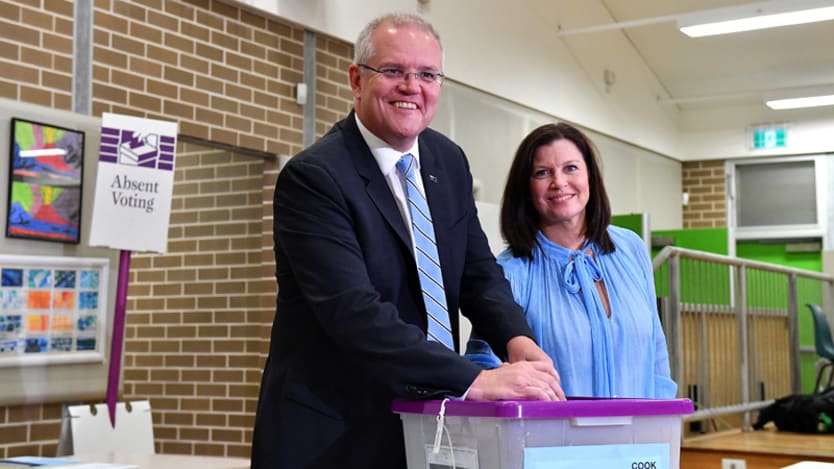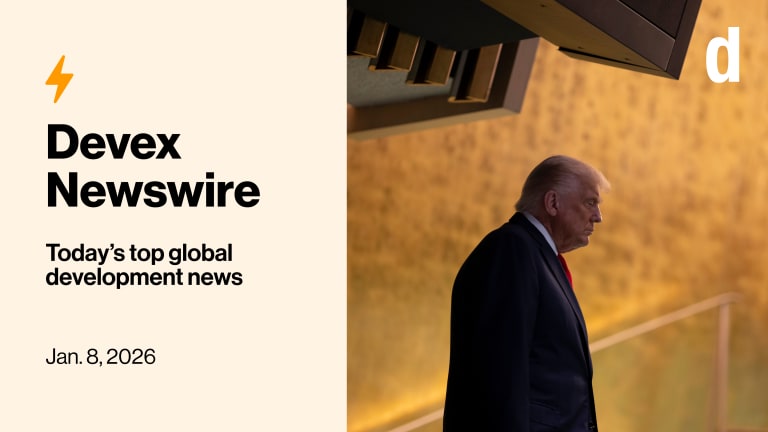
CANBERRA — A surprising election result in Australia saw the return of a conservative Coalition government headed by Scott Morrison. But U.S.-based experts participating in a panel discussion hosted by the Center for Strategic and International Studies last week believe that despite the returning government, Australia’s foreign policy may not continue on the same trajectory.
“We’ve not seen a Morrison government,” Alan Tidwell, professor of the practice and director of the Center for Australian, New Zealand & Pacific Studies at Georgetown University, told the audience. “While he was prime minister, he hit the ground running in election mode — he never really had an opportunity to be prime minister on his own. So it’s going to be really interesting to see how that rolls out and what the manifestations of his leadership are.”
In unpacking the results of the election and the implications for a range of policies, including foreign policy, senior adviser and director of CSIS’ Southeast Asia Program, Amy Searight said there were two key issues: “climate change and China.” Both issues impact strongly on the battleground that has emerged at the center of conflicting global policies, including China-Australia-United States relations — the Pacific.
Geopolitics
The growing strain on geopolitics between Australia and China, Searight explained, began under the leadership of former Prime Minister Malcolm Turnbull.
“The Liberal government under Turnbull and now Morrison has taken a very hard line on China — at least from Beijing’s perspective,” she said. “There was the anti-interference legislation, and one of the last things Malcolm Turnbull did before he was rolled was [to make] the regulation that Chinese companies Huawei and ZTE could not participate in the building of the 5G network in Australia. Beijing has been very unhappy about that and has put Canberra in a diplomatic freeze.”
But there was an anticipation that, with an expected Labor election victory, the reset would happen with new players at the table. Zack Cooper, a research fellow at the American Enterprise Institute, said it put Beijing in a difficult spot trying to figure out how to deal with this new government.
“Do you punish them for the policies the Coalition adopted over the past few years or do you try and slowly take Australia out of the freezer and approach the Morrison government as a new government and basically wave off the last nine months or so?” he asked.
His expectation is that Beijing will try to rekindle a relationship and the results could see some tougher policies from the United States not echoed in Australia if the Morrison government tries to “reach out more in a more positive way.”
The Pacific
The geopolitical conflict is playing out in the Pacific with Tidwell explaining that Australia, New Zealand. and the U.S. were among the countries “making a stronger pitch” in the region to combat the growing Chinese influence through the Belt and Road Initiative — including Australia’s commitment to the development of the Australian Infrastructure Financing Facility for the Pacific.
Australia, New Zealand, and the U.S. were the preferred partners to assist in the delivery of projects in the region, he said, but despite the preference, there needed to be a commitment to develop these relationships. And for Australia, the election had created a barrier with a “palpable sense of disappointment” in the Pacific due to the result appearing to be a rejection of stronger climate action.
“I think that is going to be a weight that Australia is going to have to manage with the Pacific Islands Forum as well as capitals around the Pacific,” Tidwell said.
It was a concern echoed by Cooper.
“One of the top issues in the Pacific is climate change,” he said. “So how do you go to Pacific islands and convince them that this is not all about geopolitics, that it’s not all about U.S.-China and Australia-China, but you really care about what is going on in the Pacific islands without talking a little bit about climate change. And can a leader like [U.S. President Donald] Trump and Morrison actually do that effectively? I don’t know. It’s a tough question.”
But there was also cynicism in the Pacific that greater interest in the region would last, with Tidwell saying previous Western engagement has been “episodic.”
“As we look at the competition between the United States and China and competition for influence in the Pacific, one of the things we really need to have an eye on is having an engagement that isn’t just episodic, that isn’t the flavor of the month, but persists over time.”
Understanding China ‘savvy’
The challenge in the debate, Searight said, was considering China’s involvement in the Pacific as a “black and white issue.”
“There are projects that are welcome and are seen in their long-term interests and others that they’re quite aware are shoddy and come with downside risks and so-on,” she said. “They’re savvy managers of China. They’ve been dealing with China longer than we have. We should be supporting them with alternatives and any other assistance and showing up, but I don’t think we should assume that the Belt and Road initiatives are unappealing for all countries in all cases.”
And Searight said it was important to consider the importance of Chinese commercial development in Pacific countries which is “pouring in investment the way traditional donors are not.”
“We shouldn’t be naive to think that by ‘stepping up’ ... we alleviate that type of influence and leverage as well,” she said.
It is a challenge Morrison’s new government — including new Minister for International Development and the Pacific Alex Hawke — will need to consider as part of its regional engagement moving forward.
Search for articles
Most Read
- 1
- 2
- 3
- 4
- 5








